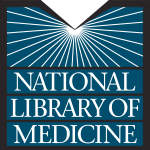- Отрасли: Library & information science
- Number of terms: 152252
- Number of blossaries: 0
- Company Profile:
The National Library of Medicine (NLM), on the campus of the National Institutes of Health in Bethesda, Maryland, is the world's largest medical library. The Library collects materials and provides information and research services in all areas of biomedicine and health care.
The surgical insertion of a hollow needle through the abdominal wall and into the uterus of a pregnant female to obtain amniotic fluid especially to examine the fetal chromosomes for an abnormality and for the determination of sex.
Industry:Medical
1) A group of sporadic, familial and/or inherited, degenerative, and infectious disease processes, linked by the common theme of abnormal protein folding and deposition. As the amyloid deposits enlarge they displace normal tissue structures, causing disruption of function. Various signs and symptoms depend on the location and size of the deposits.
2) A group of diseases in which protein is deposited in specific organs (localized amyloidosis) or throughout the body (systemic amyloidosis). Amyloidosis may be either primary (with no known cause) or secondary (caused by another disease, including some types of cancer). Generally, primary amyloidosis affects the nerves, skin, tongue, joints, heart, and liver; secondary amyloidosis often affects the spleen, kidneys, liver, and adrenal glands.
Industry:Medical
1) A neurotransmitter. Acetylcholine in vertebrates is the major transmitter at neuromuscular junctions, autonomic ganglia, parasympathetic effector junctions, a subset of sympathetic effector junctions, and at many sites in the central nervous system. It is generally not used as an administered drug because it is broken down very rapidly by cholinesterases, but it is useful in some ophthalmological applications.
2) A neurotransmitter C<sub>7</sub>H<sub>17</sub>NO<sub>3</sub> released at autonomic synapses and neuromuscular junctions, active in the transmission of nerve impulses, and formed enzymatically in the tissues from choline.
Industry:Medical
1) A syndrome resulting from the acquired deficiency of cellular immunity caused by the human immunodeficiency virus (HIV). It is characterized by the reduction of the Helper T-lymphocytes in the peripheral blood and the lymph nodes; opportunistic infections (usually pneumocystis carinii pneumonia, cytomegalovirus (CMV) infections, tuberculosis, candida infections, and cryptococcosis); and the development of malignant neoplasms (usually non-Hodgkin's lymphoma and Kaposi's sarcoma). The human immunodeficiency virus is transmitted through sexual contact, sharing of contaminated needles, or transfusion of contaminated blood. Generalized lymphadenopathy, fever, weight loss, and chronic diarrhea are common symptoms of AIDS. The patients usually die either of opportunistic infections or malignant neoplasms. -- 2004
2) A disease caused by human immunodeficiency virus (HIV). People with AIDS are at an increased risk for developing certain cancers and for infections that usually occur only in individuals with a weak immune system.
Industry:Medical
A drug that lowers high levels of uric acid (a byproduct of metabolism) in the blood caused by some cancer treatments.
Industry:Medical
1) Temporary absence of breathing or prolonged respiratory failure.
2) Transient cessation of respiration whether normal (as in hibernating animals) or abnormal (as that caused by certain drugs).
Industry:Medical
1) The order of amino acids as they occur in a polypeptide chain. This is referred to as the primary structure of proteins. It is of fundamental importance in determining protein conformation.
2) The linear order of the amino acids in a protein or peptide.
Industry:Medical
A disorder of the skin caused by inflammation of the skin glands and hair follicles; specifically: a form found chiefly in adolescents and marked by pimples especially on the face.
Industry:Medical
